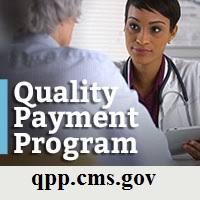 Excerpted from Ark Valley Voice (an online news source in Central Colorado):
Excerpted from Ark Valley Voice (an online news source in Central Colorado):
Ahead of SURS Program Expiration, Bennet, Cassidy, Welch, Burgess Introduce Legislation to Extend Technical Support Program for Clinicians in Small Practices
Posted by Jan Wondra | Feb 4, 2022
On Wednesday February 2nd, U.S. Senators Michael Bennet (D-Colo.) and Bill Cassidy (R-La.), and U.S. Representatives Peter Welch (D-Vt.) and Michael Burgess (R-Texas) introduced the “Small Practice, Underserved, and Rural Support Program Extension Act” of 2022 (SURS Extension Act). The extension is important to medical practices throughout the nation, particularly in small practices, underserved areas, and rural areas.
The bipartisan, bicameral SURS Extension Act would reauthorize the Centers for Medicare & Medicaid Services (CMS) technical assistance initiative for clinicians in small practices participating in the Quality Payment Program (QPP) known as the Small, Underserved, and Rural Support (SURS) program.
The SURS program is set to end on February 15, 2022 if Congress does not take action to extend it.
“Extending the SURS program is an important bipartisan effort that will help small providers in Colorado and across the nation,” said Bennet. “Our legislation will extend the program, helping small and many rural providers move towards quality payment models and, in turn, lowering costs and improving outcomes for patients. I’ll continue working with my colleagues to ensure we secure an extension of this vital program.”
“Small health care providers in rural and underserved areas don’t have the big administrative staffs to deal with complex Medicare reporting requirements,” said Dr. Cassidy. “This legislation gives support to small practice docs so they can focus on providing the best quality care for their communities.”
“This legislation extends much-needed help for the small and rural health care providers that are at the heart of Vermont’s health care system,” said Welch. “Extending the QPP-SURS program helps make sure that rural clinicians get the technical assistance they need to provide high quality affordable and accessible care to Medicare patients.”
“Our health care heroes have put it all on the line over the duration of this pandemic,” said Dr. Burgess. “We have a responsibility to support them in every way we can. This program has been successful in providing the technical support needed to navigate reporting requirements for rural and underserved physicians who want to transition to value-based care. We must provide this support to physicians who want to modernize their models of care.”
The SURS ACT was signed into law in May 2015, under the Obama administration, known as the Medicare Access and CHIP Reauthorization Act of 2015 (MACRA), which established the Quality Payment Program (QPP). MACRA authorized and funded the SURS program, a program and practice-level technical assistance program for Merit-based Incentive Payment System (MIPS) eligible clinicians in practices of 15 or fewer providers, with priority given to practices in rural areas, areas with a health professional shortage, and medically underserved areas. Since 2017, the SURS program has provided direct support to an average 107,250 clinicians annually.
“We commend the introduction of the SURS Extension Act and encourage its swift passage. Physicians in rural parts of the state have and will continue to depend on this program to help them provide the quality, cost-effective care that Medicare patients need whether they’re from Colorado’s Eastern Plains or the Western Slope. The technical assistance provided by the program is incredibly valuable to ensure that small practices in rural and underserved areas have the support and tools necessary to succeed in the continuously changing MIPS program,” said Mark B. Johnson, M.D., MPH, President of the Colorado Medical Society.
Readers should know that the program is endorsed by: American Academy of Family Physicians, American Academy of Home Care Medicine, American Association of Hip & Knee Surgeons, American College of Physicians, American Health Quality Association, American Medical Association, American Osteopathic Association, Alliant Health Solutions, Altarum, Civitas Networks for Health, Colorado Medical Society, Comagine Health, Healthcentric Advisors, Medical Group Management Association, MetaStar, Inc., National Coalition on Health Care, National Partnership for Women & Families, Northwestern University Feinberg School of Medicine, Qsource, Quality Insights, Primary Care Collaborative, Stratis Health, TMF Health Quality Institute, UK HealthCare, and Vermont Medical Society.
In a letter in support of the SURS Extension Act, the above group of organizations wrote:
“[Payment] reform programs are complex, and clinicians require supplemental resources and guidance to meet the substantial quality and cost containment aspirations of payment models…The COVID-19 pandemic has further exacerbated this issue by restricting the availability of these clinicians to understand updates and changes to payment reform programs. The SURS Extension Act extends the QPP-SURS program until 2027 and ensures that small practices in rural and underserved areas have the support and tools necessary to succeed in the MIPS program.”
You can access the original Ark Valley Voice article HERE.
The full bill text is available HERE.
As a subcontractor to Altarum Institute of Michigan, Kentucky Regional Extension Center exclusively serves and supports the eligible providers in Kentucky. However, after five years of support, the QPP SURS technical assistance grant will end on February 15, 2022. You can read our blog post about the end of the SURS technical assistance HERE.
Contact the expert advisors at Kentucky REC for all your QPP, MIPS, and APM questions. We’re here to help: 859-323-3090.

